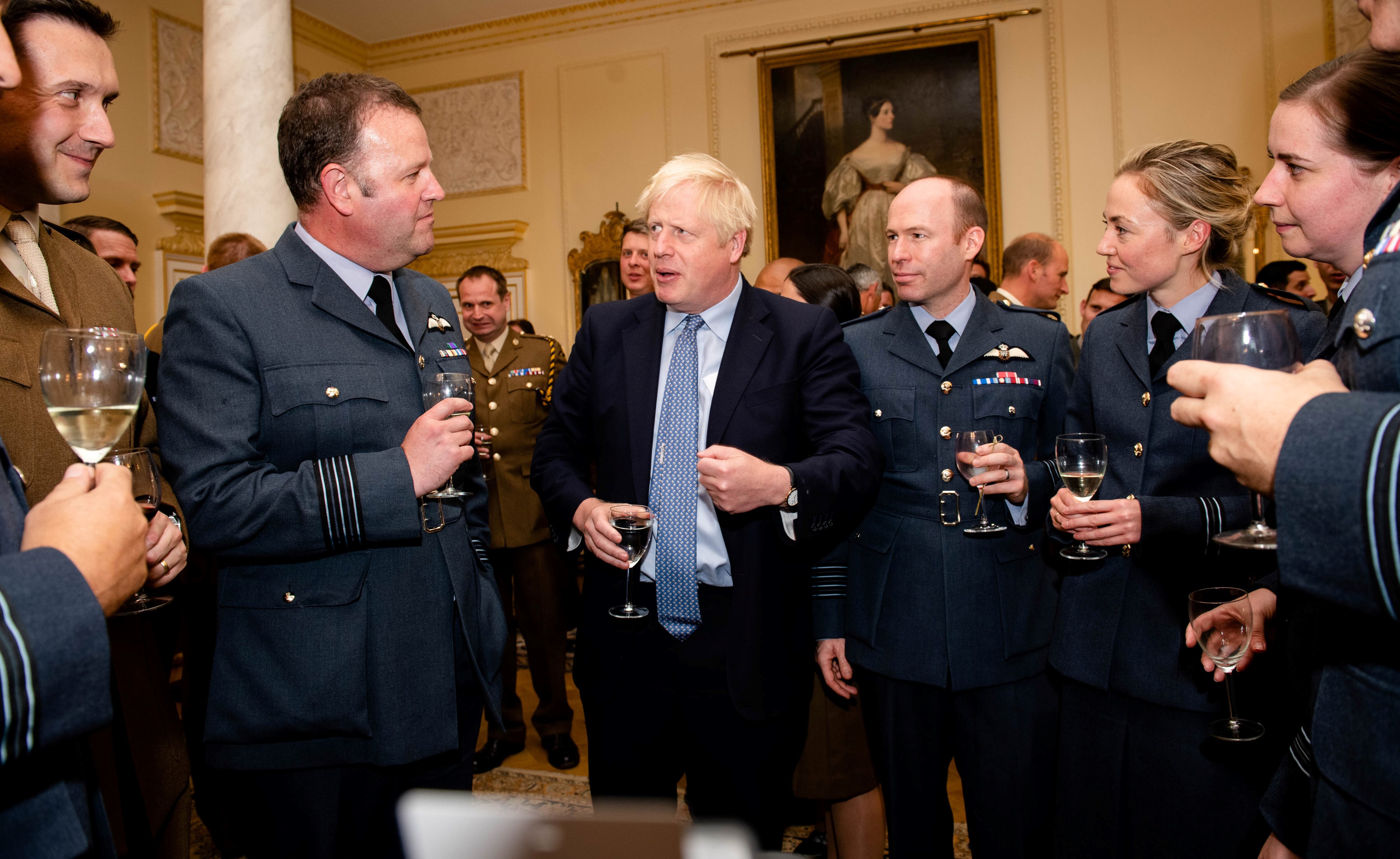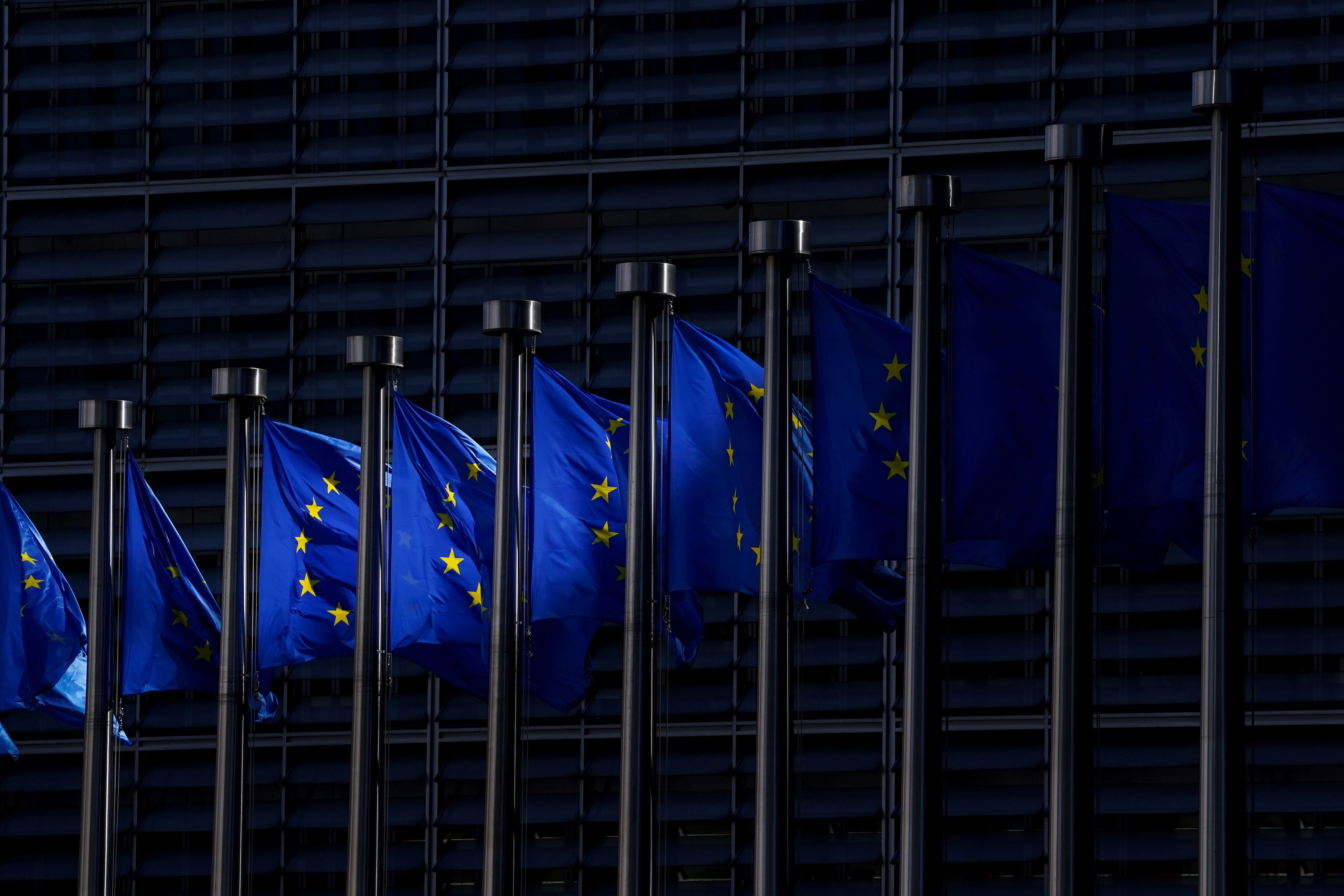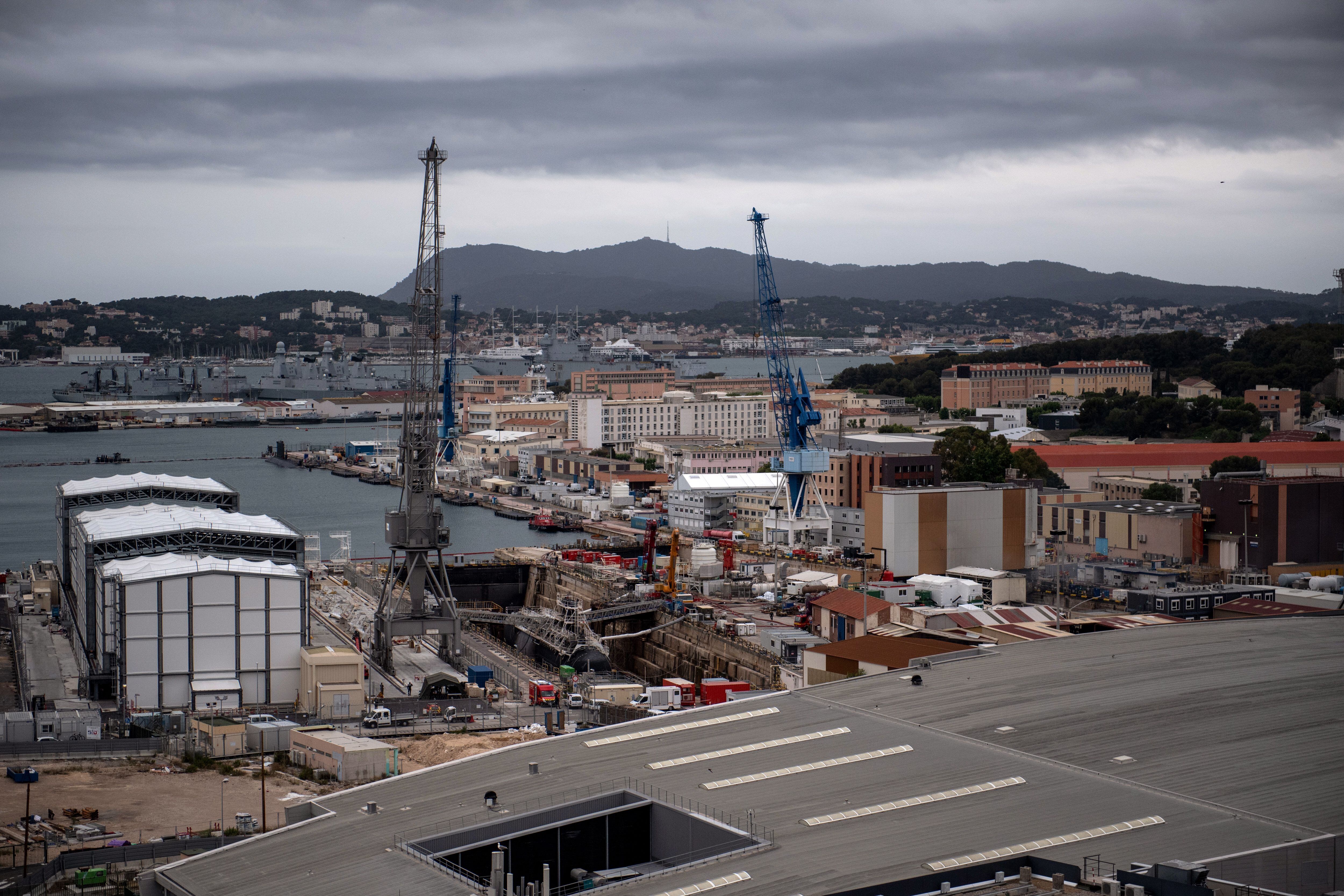LONDON — Producing a promised new defense and security review was never going to be straightforward for the British government, but the impact of the COVID-19 crisis and the fast-evolving geostrategic position has muddied the waters even further, leaving open the question of future investment priorities.
The integrated defense, security and foreign policy review ordered by Prime Minister Boris Johnson soon after he entered office last December was meant to provide answers to how Britain would make its way in the world post-Brexit.
That exercise is partly, but not entirely, on ice as the government focuses its attention on trying to control COVID-19 without putting the economy back in the Stone Age.
Completion of the review has been pushed back from this summer to sometime next year.
Stephan Lovegrove, the Ministry of Defence’s permanent secretary, told the parliamentary public accounts committee recently that some work on the review was ongoing, with early results expected to emerge this year.
“There will potentially be something direction-setting later this year. Exactly how full that is, I do not know. Our view is that the fuller it can be, the better,” Lovegrove said.
One MoD official, who asked not to be named, said one of the key items now being worked on was a look at the balance of economic priorities versus national security priorities.
It’s a key question, the answer to which will likely set the scene for decisions on defense investment priorities for years to come.
Johnson’s original claim that the review would be policy driven, not financially compelled, is no longer the case — if it ever was.
RELATED

Independent analyst John Louth says that post COVID-19, it’s going to be all about the money.
“Without doubt the pandemic has changed everything. It [the review] is going to be driven by affordability,” Louth said.
Defense commentator Howard Wheeldon of Wheeldon Strategic Advisory said funding was going to be a big problem across the West.
“Pressures on Western governments in relation to defense spending have probably never been greater. But while we are seeing a significant awareness of the need to invest in activities like cyber, space and ISTAR we cannot afford to ignore the ongoing need to invest in conventional weapons,” he said.
“China is investing heavily in air and maritime, and Russia, despite economic pressures, is increasing spend on conventional weapons. Given that COVID-19 has impacted on virtually every nation we must expect that defense spending will be impacted in the medium term,” Wheeldon said.
“For the UK we must anticipate cuts in legacy systems across all three services but I am of the view that the army will bear the brunt when it comes to capacity reduction,” he added.
It’s not just affordability that is the issue.
The pandemic is focusing the minds of parliamentarians and others on issues like homeland resilience.
The military here have been lauded for their efforts supporting the fight against COVID-19 but it could eventually come at a cost, according to Doug Barrie, a senior analyst at the International Institute for Strategic Studies think tank in London.
“The recognition for greater societal resilience, and the associated cost of this, as a result of the pandemic threatens to be a draw on the U.K.’s armed forces in terms of personnel and future investment — this will put pressure on defense expenditure across the board,” Barrie said.
“A neutral budget would be a success for MoD, but I can see some projects being postponed and platform capabilities trimmed as a near term measure,” he added.
It wouldn’t be so bad if the defense equipment budget was currently under control, but it’s not.
RELATED

The National Audit Office, the government’s financial watchdog, reckons the current equipment plan has been unaffordable for several years.
The worst-case scenario puts the 10-year equipment budget shortfall at £13 billion (U.S. $16 billion) says the NAO.
While a decision by Johnson and his advisors on Britain’s strategic road map is thrashed out the MoD is living pretty much hand-to-mouth, balancing the books annually by in-year reductions in equipment spending and other measures.
Lovegrove told the parliamentary committee the MoD is focusing on smaller programs to cut to leave the government with space to make decisions on more strategic issues during the defense review. Such an approach does have financial consequences, though.
“What we typically seek to do is to look at some of the less strategic capabilities, which we are capable of making decisions on outside of a full-blown, multi-year strategic review, and ask difficult questions of those for the [Service] Commands. Ultimately, we would like the Commands to make their own decisions. Sometimes those are cut; more often, they are deferred and descoped,” he said.
“Deferring programs in order to give ministers proper choices within a strategic context has the result of pushing the bow wave of the unbalanced budget out a year or two, making it a bit bigger,” the permanent secretary said.
“There is a cumulative effect of doing what we have to do to maintain the integrity of the program of record when the balance is out of whack, in that we defer for a year, then defer for a year, then put projects on shorter rations. The bow wave becomes bigger. You see that in the nature of the more difficult financing position that we have for the next three or four years. ... So, yes, I think that the program is very tight and getting tighter,” Lovegrove warned.
Without the results of the review the defense sector is operating in a bit of a vacuum on the equipment front.
Louth said that ultimately what the MoD spends its money on will be dictated by an as yet unknown view of Britain’s foreign policy goals in a post-coronavirus, post-Brexit era.
“Where the money is invested depends what they [the government] want to do. The problem is can anybody put their hand up and say ‘we understand what theUK strategic ambition is at the moment,” he said.
Despite the strategy vacuum the review likely heralds significant change to investment priorities, according to Wheeldon.
“I see a huge change of approach emerging in the UK — one that will concentrate more resources on internal defense, cyber and space and less on conventional armies and battlefield activities. The UK will remain committed to air and maritime and in particular ISTAR and carrier strike. Whilst retaining the overall air and maritime commitment to the NATO alliance I envisage a shift away from front-line land systems support to that of increased ISTAR, space and cyber,” Wheeldon said.
Which sectors will see the money invested ?
RELATED

“My money would remain very much on ensuring we have sufficient air and maritime capabilities, particularly ISTAR, and fast jet and surface and sub-surface maritime capability. Investing in space is crucial, investing in cyber is hugely important. I also remain committed to replacement of our nuclear deterrent capability,” Wheeldon said.
Barrie agreed about the key requirement to invest in sectors like cyber, space and ISTAR, but cautioned that even here “ambitions will have to be shaped by budgetary reality.”
In a paper published in March as the COVID-19 crisis took hold, the Royal United Services Institute’s deputy director-general, Malcolm Chalmers, and Will Jessett, a former strategy director at the MoD, offered a view of Britain’s defense priorities should be in the future.
Britain’s new policy should be encapsulated in a new doctrine of enlightened national interest, they said.
“Under such an approach, the first priority for the armed forces should be the defense of the UK homeland and its immediate neighborhood. … The shape of expeditionary forces should now be determined primarily through the need to work closely with NATO allies in defense of Europe and its immediate neighborhood,” the two analysts said.
The analysts’ view of local and regional defense is partly reflected in their equipment list for Britain’s future forces.
“Defence priorities over the coming decade need to include robust air defense of the UK (and the Republic of Ireland), strengthened coastal defenses against limited incursions, protection of infrastructure (defense and civil) against virtual and physical attack, and maintaining the ability to provide adequate support to the civil power in national emergencies,” they said in their RUSI paper.
A move towards defense of the U.K. and, through NATO, its immediate neighborhood, would represent a significant shift.
Just a little over 15 months ago then-Defence Secretary Gavin Williamson was making the case for Britain competing for its interests on a global playing field.
“In an era of great power competition we cannot be satisfied simply by protecting our own backyard” Williamson said in a speech at RUSI.
RELATED

Britain has spent billions of pounds building two new F-35 equipped aircraft carriers as part of that policy and needs to invest heavily to buy additional jets and carrier strike support vessels.
But a swing towards beefing up defenses in Europe may gain more traction following U.S. President Donald Trump’s recent announcement he was withdrawing thousands of troops from Europe.
Whether or not Trump means it, or is playing to the gallery ahead of the U.S. elections in November, is unclear, but a significant reduction in U.S. manpower would go right to the heart of NATO planning assumptions. Causing European powers like Britain to rethink how they address the need for their forces to maneuver against a potential adversary like Russia without significant US military support.
Louth said the Russian’s pushing west to regain territory lost since the end of the Cold War is not as unthinkable as it once was.
“We have to be able to address that level of uncertainty and in defense that must be about protecting Europe’s borders. What it means is you have to have an investment strategy and a capability generation process that allows you to protect those borders by being able to maneuver across a highly amorphous battlefield across a number of domains.The physicality of force goes to the heart of deterrent,” the analyst said.
Andrew Chuter is the United Kingdom correspondent for Defense News.








